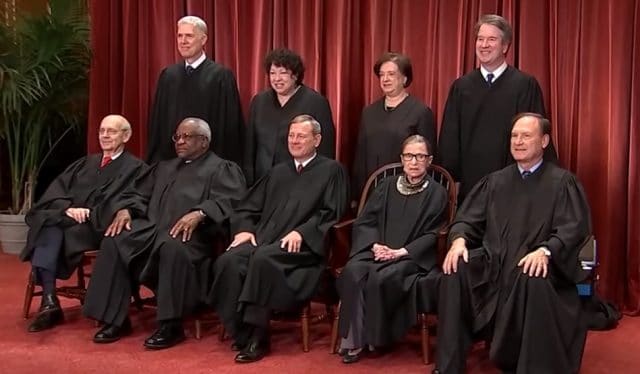
Chase Strangio, a lawyer with the American Civil Liberties Union, tweeted an urgent message to the LGBT community over the weekend.
“If you don’t know what is happening on October 8th I urge you to find out,” Strangio posted on Sunday.
“It will be one of the biggest days in LGBTQ legal history and we have a lot to do to prepare. Our fight is at SCOTUS. Our lives on the line. Don’t look away,” he added.
The tweet is referring to the fact that the nation’s highest court is set to hear oral arguments on three separate court cases that involve anti-LGBTQ+ discrimination in the workplace and whether such discrimination is prohibited under existing federal law, reports The Washington Blade.
Out.com reports:
Although about half of all LGBTQ+ people in the U.S. are protected from employment discrimination at the state level, no such protections exist at the federal level. Title VII of the 1964 Civil Rights Act expressly “prohibits employment discrimination based on race, color, religion, sex and national origin,” and “sex” in this clause has long been understood to cover sexual orientation and gender identity. But the Trump administration has sought to ignore this, pushing to more narrowly define sex as binary, assigned at birth, and totally immutable.
The three cases arriving on the Supreme Court’s doorstep this October aim to reverse the Trump administration’s course, establishing that existing federal protections against sex-based discrimination cover discrimination against LGBTQ+ people, as well. Zarda v. Altitude Express concerns a late skydiving instructor who was fired on account of being gay, while Bostock v. Clayton County concerns a municipal worker who experienced anti-gay discrimination while working in city government. The two cases have been consolidated into one single case that aims to determine whether Title VII’s prohibitions around sex-based discrimination cover sexual orientation-based discrimination. Harris Funeral Homes v. EEOC, which concerns a funeral home worker who was terminated for being trans, similarly hopes to decide whether gender identity-based discrimination is a form of sex-based discrimination.







